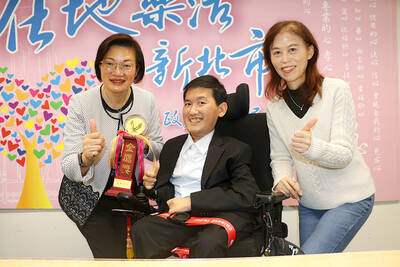Nancy Bernkopf Tucker, one of the most respected US academics specializing in Taiwan studies, has died in Washington following a long battle against cancer.
Her 2009 book, Strait Talk: US-Taiwan Relations and the Crisis with China, examined the political and security issues in the triangular relationship.
Tucker’s books, speeches and private advice influenced US policy toward China and Taiwan over the past two decades.
“She made a great contribution to understanding Taiwan’s role in American diplomacy and before that in understanding American diplomacy in a historical context,” former American Institute in Taiwan director Douglas Paal said.
“On top of that, she was a really caring professor who helped her students develop careers,” he said.
A professor of history at Georgetown University and at the Edmund A. Walsh School of Foreign Service, Tucker specialized in US relations with China, Taiwan and Hong Kong.
“She was a first-rate historian of Sino-American relations, a passionate teacher and a dedicated public servant,” School of Foreign Service dean Carol Lancaster said.
In the middle of the 1980s, Tucker served in the Office of Chinese Affairs at the US Department of State and at the US embassy in Bejing.
Tucker was a member of the Council on Foreign Relations.
She edited the 2005 book Dangerous Straits about contemporary problems in US-Taiwan-China relations and was the author of Uncertain Friendships: Taiwan, Hong Kong and the US, 1945-1992, which won the 1996 Bernath Book Prize.
The Wilson Center issued a statement saying that Tucker — a Wilson Center scholar — was one of “the most respected historians of her generation.”
She is survived by her husband, Warren Cohen, who is also a Wilson Center senior scholar.
“Few in Washington compared to her in terms of incisive and straightforward analysis of US relations with both Taiwan and China,” said Gerrit van der Wees, a senior political adviser at the Formosan Association for Public Affairs.
Tucker was “unsparing” in her criticism of former US president Richard Nixon and former US national security adviser Henry Kissinger for giving “Beijing what it wanted in order to make a deal” over Taiwan, Van der Wees said.
Recently, she expressed strong reservations about the willingness of China’s new leaders to move in what she considered the “right” direction.
“A more realistic appraisal of China’s leaders reveals a group of conservative and cautious men highly unlikely to take bold steps toward structural reform,” she wrote.
“Their priority is to keep themselves in power,” Tucker said.
“Her hard-nosed realism and the charm with which she was able to present her arguments will be dearly missed,” Van der Wees said.
“She was a great historian and a lady who stood by the basic principles for which the US stands,” he said.

A strong continental cold air mass is to bring pollutants to Taiwan from tomorrow, the Ministry of Environment said today, as it issued an “orange” air quality alert for most of the country. All of Taiwan except for Hualien and Taitung counties is to be under an “orange” air quality alert tomorrow, indicating air quality that is unhealthy for sensitive groups. In China, areas from Shandong to Shanghai have been enveloped in haze since Saturday, the ministry said in a news release. Yesterday, hourly concentrations of PM2.5 in these areas ranged from 65 to 160 micrograms per cubic meter (mg/m³), and pollutants were

Taiwan’s armed forces have established response protocols for a wide range of sudden contingencies, including the “Wan Chun Plan” to protect the head of state, the Ministry of Defense (MND) said today. After US President Donald Trump on Saturday launched a series of airstrikes in Venezuela and kidnapped Venezuelan President Nicolas Maduro, concerns have been raised as to whether China would launch a similar “decapitation strike” on Taiwan. The armed forces regularly coordinate with relevant agencies and practice drills to ensure preparedness for a wide range of scenarios, Vice Minister of National Defense Hsu Szu-chien (徐斯儉) told reporters before a

EVA Airways on Saturday said that it had suspended a pilot and opened an investigation after he allegedly lost his temper and punched the first officer several times as their plane was taxiing before takeoff at Los Angeles International Airport. According to a report published on Thursday by The Reporter, the incident occurred after the flight’s Malaysian first officer tried to warn the Taiwanese pilot, surnamed Wen (文), that he was taxiing faster than the speed limit of 30 knots (55.6kph). After alerting the pilot several times without response, the first officer manually applied the brakes in accordance with standard operating

The New Taipei City Social Welfare Department on Thursday celebrated Paralympic competitor Chen Tzu-wei (張孜維), who received last year’s national Golden Eagle award for exemplary achievement by Taiwanese with disabilities. Chen, who suffers from childhood-onset muscular dystrophy, did not attend the first award ceremony held by the Ministry of Health and Welfare in November due to illness. Chen was formally presented with the award at the department, where he gave thanks to government workers for supporting his education and livelihood, the department said in a statement. Chen was raised by the Ai-hsin Home for Persons with Disabilities in the city’s Bali District (八里)